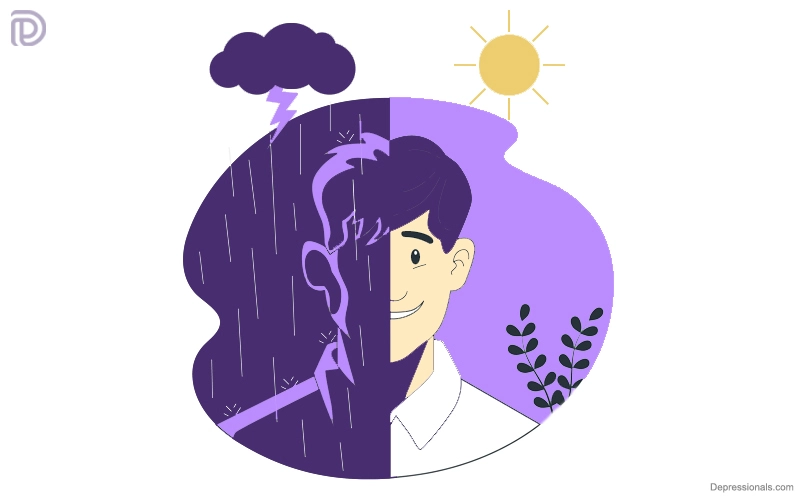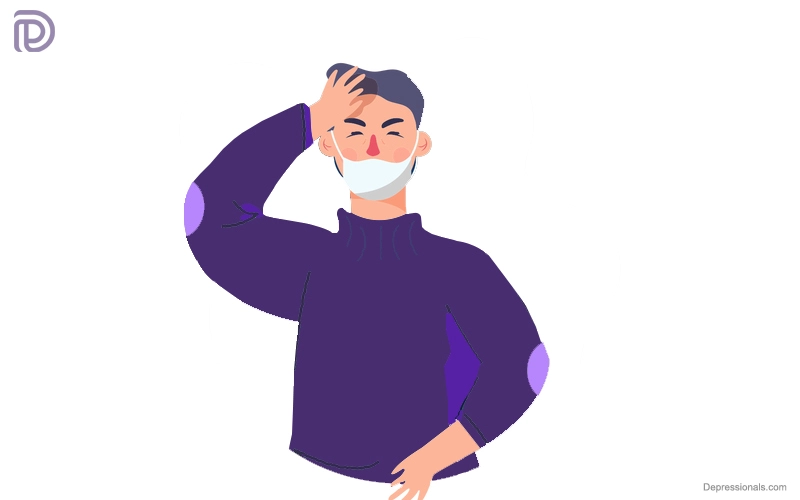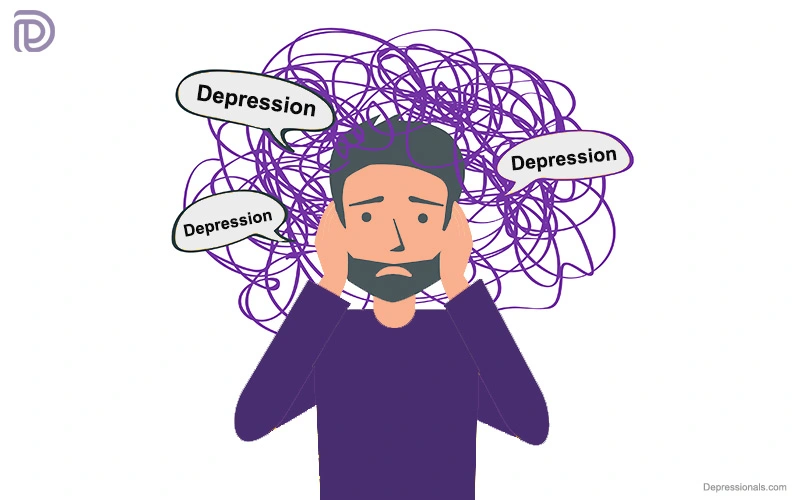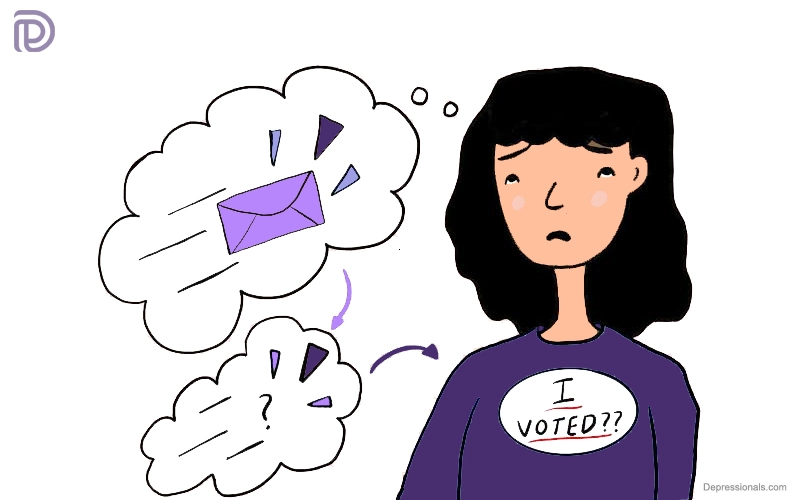What is bipolar 1 disorder?
Bipolar 1 disorder (also known as manic depression or manic-depressive disorder) is a condition of the brain characterized by alternating episodes of extreme depression and euphoria. Bipolar I disorder sufferers have experienced at least one manic episode. When a manic episode occurs, the person is affected by an abnormally high energy level and elevated mood with abnormal behavior that disrupts normal life.
Depression is common to people who suffer from bipolar disorder. Depression and mania are often linked. It is from this standpoint that “manic depression” was coined. Bipolar 1 disorder sufferers can live a normal life between episodes of mania and depression.
Who is at risk for bipolar I disorder?
Anyone can suffer from bipolar I disorder. Over 6 million Americans suffer from bipolar disorder or about 2.5% of the population.
Symptoms of bipolar disorder usually first appear in teens or early 20s. About 80% of people who develop bipolar I before they turn 50 have the disorder. Bipolar patients are at a higher risk if they have immediate family members with the disorder.
Read: Situational Depression
What are the symptoms of bipolar 1 disorder?

When someone is having a manic episode, the raised mood may manifest as either euphoria (feeling “high”) or as irritability.
During manic episodes, abnormal behavior includes:
- Jumping from one idea to another suddenly
- Speaking fast (uninterrupted) and loud
- An increase in energy decreased sleep needs and hyperactivity
- Self-esteem inflated
- Excessive spending
- Hypersexuality
- Substance abuse
Manic episodes often lead to excessive spending, intimacy with people they wouldn’t otherwise or pursuing unrealistic goals. The person loses touch with reality during severe manic episodes. Delusions may make them behave bizarrely.
The duration of an episode of mania depends on how long it goes untreated. Symptoms usually persist for several weeks to several months. It may take weeks or months for depression to set in, or it may occur shortly after.
It is common for people with bipolar I disorder to go months without experiencing any symptoms. The majority of people suffering from mania and depression experience rapid-cycling symptoms, where they may experience multiple bouts of mania or depression during a single year. There can also be mixed mood episodes, when manic as well as depressive emotions occur simultaneously, or when these feelings alternate from one pole to another.
Bipolar disorder is characterized by depressive episodes similar to “regular” clinical depression, with depressed mood, loss of pleasure, a reduced level of energy and activity, and thoughts of suicide. In most cases, bipolar disorder symptoms last a few weeks to months, rarely longer than a year.
Read: Double Depression Disorder
What are the treatments for bipolar 1 disorder?
Bipolar I disorder is treated with mood stabilizers and antipsychotic drugs, and sometimes with sedative-hypnotics such as benzodiazepines clonazepam (Klonopin) and lorazepam (Ativan).
Mood stabilizers
A simple metal called lithium (Eskalith, Lithobid) can help treat manias accompanied by classical euphoria rather than manias that include both depression and euphoria simultaneously. The treatment of bipolar disorder with lithium has been around for more than 60 years.
Taking lithium for an extended period can be beneficial, rather than using it to treat sudden episodes of manic behavior. To prevent side effects, lithium blood levels should be monitored, as well as kidney and thyroid function tests.
The antiseizure medication valproate (Depakote) also regulates mood. An acute episode of mania is treated faster with it than with lithium. As a preventive measure, it is also commonly used as “off label.” It is important to know that valproate may provide significant improvement in mood as soon as four to five days after it is started as a mood stabilizer by a “loading dose” method.
Other antiseizure medications like carbamazepine (Tegretol) and lamotrigine (Lamictal) may be useful for treating or preventing depressions or manias. Occasionally, less well-established antiseizure medicines are used experimentally to treat bipolar disorder, such as oxcarbazepine (Trileptal).
Read: How to Get Out of a Depressive Episode
Antipsychotics
Haldol, Loxapine, and Thorazine are traditional antipsychotics (which are used for severe manic episodes) as well as newer antipsychotic drugs, which are atypical antipsychotics. Specifically, cariprazine (Vraylar) can treat manic and mixed episodes of psychosis.
Aripiprazole (Abilify), asenapine (Saphris), clozapine (Clozaril), olanzapine (Zyprexa), quetiapine (Seroquel), risperidone (Risperdal), and ziprasidone (Geodon) are often used, and many other drugs are available. In cases of bipolar I depression, lurasidone (Latuda) can either be used alone or in combination with lithium or valproate (Depakote). Sometimes antipsychotic medicines are used to prevent psychosis.
Benzodiazepines
The class of drugs known as minor tranquilizers includes alprazolam (Xanax), diazepam (Valium), and lorazepam (Ativan). Occasionally used to treat acute symptoms accompanying mania, such as agitation and insomnia, have little effect on core mood symptoms such as euphoria or depression. Additionally, they can form habits, so they must be closely monitored.
Antidepressants
Researchers have shown that common antidepressants like fluoxetine (Prozac), paroxetine (Paxil), and sertraline (Zoloft) should not be used to treat depression in bipolar I disorder the way they would for unipolar depression. It is possible for them to also trigger or worsen manic episodes in people with bipolar disorder.
Studies suggest that some antidepressants (such as Prozac and Zoloft) may be more effective and safer for bipolar II depression than for bipolar I depression. Due to these factors, bipolar disorder medications with antidepressant properties are first-line treatments for depression, provided they do not cause or worsen mania.
The four FDA-approved treatments for bipolar depression are lurasidone (Latuda), olanzapine-fluoxetine (Symbyax) combination, quetiapine (Seroquel), or quetiapine fumarate (Seroquel XR), and cariprazine (Vraylar).
Mood-stabilizing treatments such as lithium, Depakote, and lamotrigine (Lamictal) may sometimes be prescribed to treat acute bipolar depression (though none of these medicines has FDA approval specifically for this condition). Occasionally, an antidepressant or another medicine may be prescribed after several weeks if these treatments do not work. You may also benefit from cognitive-behavioral therapy.
To prevent recurrences of bipolar I disorder (mania or depression), a continuous course of medications is usually recommended.
Related: Inhalant Use Disorder
Electroconvulsive therapy (ECT)
Although electroconvulsive therapy (ECT) has a scary reputation, safe and effective treatment can effectively treat both manic and depressive symptoms. When medications may not be effective or likely to bring symptom relief fast enough in treating bipolar I disorder, ECT can often be used.
Can bipolar I disorder be prevented?
It is unknown what causes bipolar disorder. There is no way to prevent bipolar I disorder entirely.
Once bipolar disorder has been diagnosed, there are ways to lower the risk of episodes of mania or depression. Regular therapeutic sessions with a psychologist or social worker can assist people in identifying factors that contribute to mood destabilization (such as sleep deprivation, drug or alcohol abuse, and poor stress management), which may result in fewer hospitalizations and overall feeling better. Manic and depressive episodes can be prevented by taking medicine regularly.
Read: How to Deal with Teenage Depression
How is bipolar I different from other types of bipolar disorder?
The severely abnormally elevated moods and behaviors that characterize bipolar I disorder are experienced by people with the disorder. Symptoms of manic depression can cause serious disruptions in life (e.g., spending the family fortune or becoming pregnant unintentionally).
Mania never occurs in bipolar disorder type II. Sometimes they appear to be extremely cheerful and even entertaining — the “life of the party.” You might think that’s not so bad, but bipolar II disorder generally involves severe and disabling depression, which can often make treatment much more difficult than it would be if hypomania never happened.






Sweet blog! I found it while searching on Yahoo News.
Do you have any suggestions on how to get listed in Yahoo News?
I’ve been trying for a while but I never seem to get there!
Thanks!
Appreciate it foor this post, I am a big fan of this website would like too go on updated.
whoah, this blog is fantastic I really like studying your posts.
Stay up the great work! You understand a lot of individuals are searching around
for this info, you can help them greatly.
That is very interesting blog!
Have you ever considered publishing an e-book or guest authoring on other
websites? I have a blog based on the same ideas you discuss and would really like to have you share some stories/information. I know my audience would enjoy your work.
If you’re even remotely interested, feel free to send me
an e-mail.
If some one wishes too be updated wiith most up-to-date technologies afterward
he must be visit this web site and be up to date everyday.
Do you have a spam issue on this site; I also am a blogger, and I was
wanting to know your situation.
I’m not that much of a online reader to be honest but
your blogs really nice, keep it up! I’ll go ahead and bookmark your site to come back later.
Cheers
You made various fine poinnts there. I did a search on the
issue and found most persons will go along with with your blog.
Magnificent beat ! I would like to apprentice even as you amend your website, how could i subscribe for a blog site? The account helped me a appropriate deal. I had been tiny bit acquainted of this your broadcast provided vivid clear idea
amazing felling here.
Thanks for sharing this information…it’s very helpful!
Very interesting information!Perfect just what I was searching for!
Also, our project authors across the globe are well trained in their picked discipline which indicates you can easily put your faith in the method they treat your paper, no matter which scholastic technique you’re from..
It is very relevant to discuss such a hot topic nowadays and it is very important to write something about it.
Writing about such hot topics is important in today’s world.
how does kratom affect thyroid? Kures Kratom capsules
I can see that you are an expert at your field! I am launching a website soon, and your information will be very useful for me.. Thanks for all your help and wishing you all the success in your business.
The article is interesting. Many thanks. Does anyone else know about it?
The article is good. Thank you so much.
What a nice website, cannot wait to read new articles.
Absolutely written content, appreciate it for information. “You can do very little with faith, but you can do nothing without it.” by Samuel Butler.
Nice site I’m glad I found it
The information you have provided is very useful to me.
It is a pleasure to found that information.
I’m glad to found that. What a find! It’s right here! Thank you to the site owner.
It was very informative to read this article.
I found this article to be very informative.
This is very informative.
You wrote a great post. My first visit to your blog caught my eye.
Very well written post. Your blog caught my attention when I saw it for the first time.
Great info and straight to the point. Thanks! 🙂
Hi my loved one! I want to say that this post is awesome, nice written and include approximately all vital infos. I like to look more posts like this .
Thanks for the ideas you are discussing on this website. Another thing I’d prefer to say is that often getting hold of duplicates of your credit score in order to check accuracy of each and every detail is the first measures you have to undertake in credit improvement. You are looking to clean your credit profile from detrimental details mistakes that screw up your credit score.
Interesting article. It is very unfortunate that over the last several years, the travel industry has had to take on terrorism, SARS, tsunamis, influenza, swine flu, and also the first ever entire global downturn. Through everthing the industry has proven to be strong, resilient as well as dynamic, obtaining new solutions to deal with trouble. There are usually fresh complications and possibilities to which the business must once again adapt and answer.
It is an excellent article with fair sources.
Your article is excellent and fair sourced.
It will be a pleasure to read more. Thanks for writing!
Thanks for your blog post.
I look forward to reading more. It was a pleasure to read. Many thanks!
I’m eager to read more. Thanks for sharing. I really appreciate it! Great work.
Undeniably believe that which you stated. Your favorite reason appeared to be on the internet the simplest thing to be aware of. I say to you, I definitely get annoyed while people think about worries that they just do not know about. You managed to hit the nail upon the top as well as defined out the whole thing without having side-effects , people could take a signal. Will probably be back to get more. Thanks
Very nice cover.
Thanks for the information you provided.
Its effect is clear and introspective.
Excellent writeup.
It was very helpful, thanks a lot. My friends will definitely benefit from it.
Thanks for ones marvelous posting! I seriously enjoyed reading it.
Nice writeup.